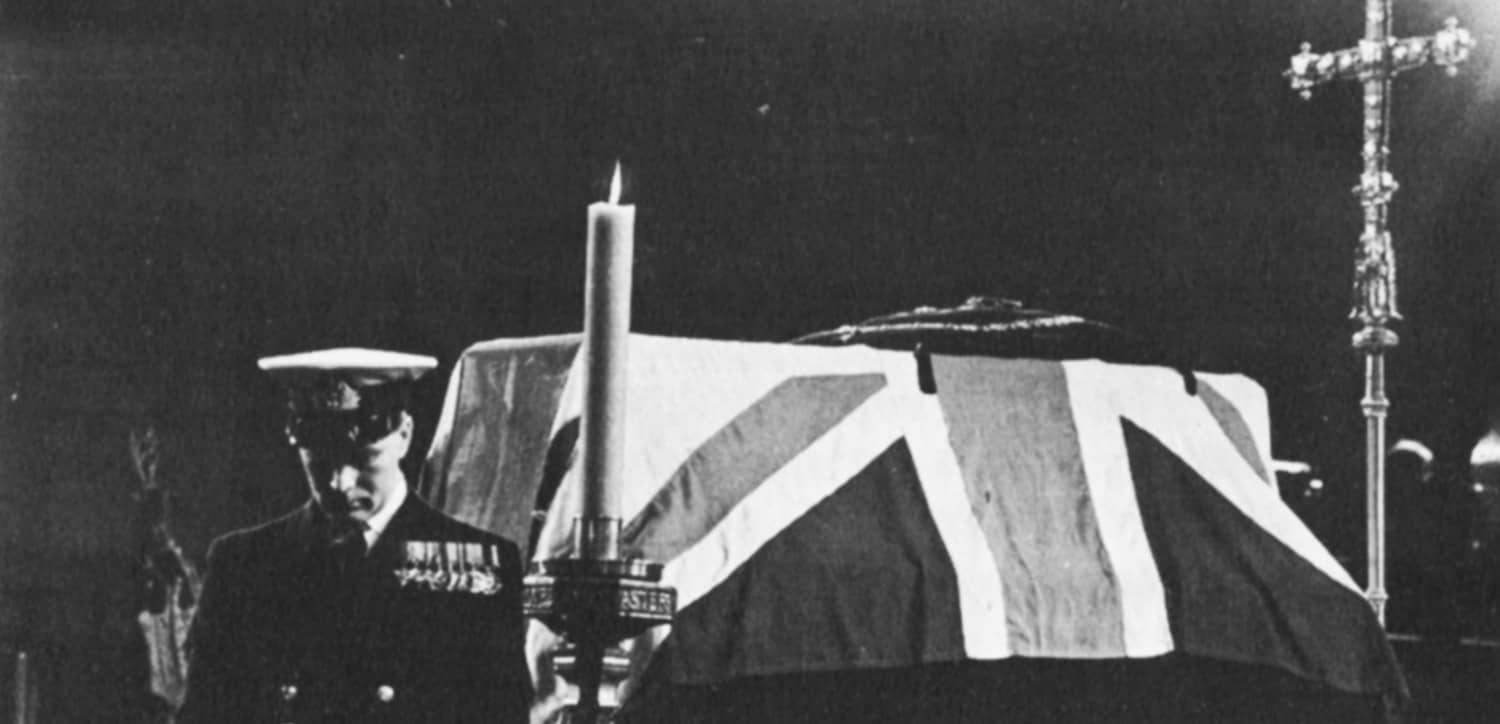That broadcast was recalled a year later in the television column of ‘New Christian’:
You don’t love a man because he’s a professional: you tend, rather, to distrust him, particularly if his professional expertise is directed towards the projection of an image which sometimes seems too gentle to be true.
But people did love Richard Dimbleby and I for one am not ashamed to acknowledge that I was, and remain, one of them. And since I think the roots of my affection for him have a general significance in terms of the whole medium of television I have decided to explain why.
I think it was because he was a person. Television is a medium which eats people. It builds a man into an image: instant soft and desirable female or instant rugged masculinity, always there for screening and plugging and satisfying the aching unconscious needs of the viewer. And if the image goes wrong or the glitter wears a bit thin then the tele-magnates smash the image, drop the idol and start all over again with somebody else. Television is no respecter of persons: it has become, rather, a machine to destroy the person in place of the transient image.
But Richard Dimbleby lasted. I think this was because he was one of those people in whom the public image was the private, interior truth. He really believed what he said on Panorama. He was unbearably open at moments when lesser men, image-mongers, dissolved into fantasy or fiction. And because he brought only himself to the screen, never a self tarted up to represent the kind of person which viewers or listeners might find desirable, it was because he was himself that you trusted him.
I know he had a lot of qualities which some people found rather plummy, his occasional tendency to cross the boundary from the factual to the magisterial, his incredible unflappability, his open devotion to Queen and Country: but these qualities were aspects of a composite person. They were never caricatures, designed cunningly for effect or viewer appeal. They were part of him. And they were complementary to other qualities which are, perhaps, even less fashionable in modern society – gentleness, patience, respect and charity.
There have been moments in all our lives which have been appreciated and savoured and made history by Dimbleby. I think his great occasion for me will always be his commentary on the funeral of Sir Winston. Here was a figure out of history, an old lonely man going to his long home and taking with him something of the glory of England. You might say that in his death England saw a final end to the dangerous myth of her superior moral authority in a wicked world. Dimbleby did not show it to us like that: he reminded us Churchill was a man, and when, in the closing minutes of that January afternoon, he talked of Bladon and the old men and maidens, young men and children, among whom in English soil Winston would soon be laid to rest, you could hear that Dimbleby himself was openly crying.
He must have known he himself was dying then. In losing him at the end of a year of national bereavement we lost a friend whose wisdom and quietness will linger with us as a reminder that we each have it in us to be a person and that the person, not the image, is holy.

